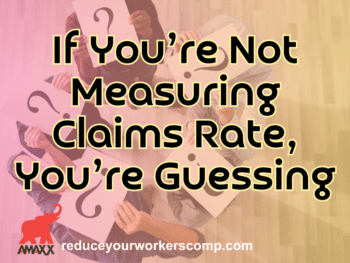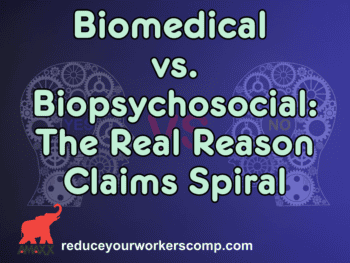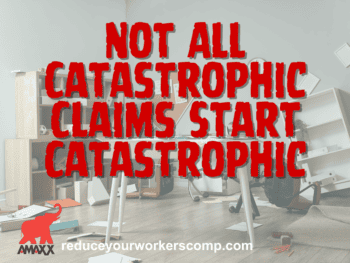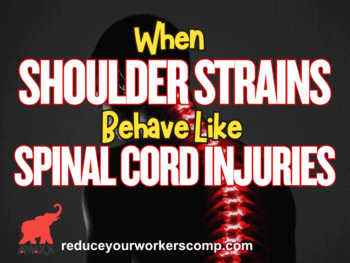Psychosomatic injuries are among the most difficult workers compensation claims an adjuster receives. These injuries frequently start out as physical and develop into a psychosomatic one over time due to various circumstances. Establishing when a physical injury becomes a psychosomatic injury is challenging, because the injured employee does not fully understand the pain is from mental factors rather than physical injury. Merriam Webster defines “psychosomatic” as “of, relating to, involving, or concerned with bodily symptoms caused by mental or emotional disturbance.” Such as, “The doctor told Mary her stomach problems were psychosomatic.”
The doctor treating the injured employee notes the physical symptoms improve, but the employee still complains of pain, stiffness, numbness, tingling, and burning. When a physical exam does not explain away the employee’s symptoms, the doctor requests additional diagnostic testing. When this occurs, the workers comp adjuster should pay close attention to the test results. If an MRI or CT scan or other diagnostic tests reveal no physical problem(s), then the adjuster is facing a significant challenge with the claim and must consider the possibility of a psychosomatic injury.
Click Link to Access Free PDF Download
“How Do I Get My Adjusters To Follow My Account Handling Instructions?”
2. When an objective test addresses a specific set of physical symptoms and verifies there is not a physical cause, the injured employee replaces those symptoms with a new set of symptoms.
Author Rebecca Shafer, JD, President of Amaxx Risk Solutions, Inc. is a national expert in the field of workers compensation. She is a writer, speaker, and website publisher. Her expertise is working with employers to reduce workers compensation costs, and her clients include airlines, healthcare, printing, publishing, pharmaceuticals, retail, hospitality, and manufacturing. See www.LowerWC.com for more information. Contact: RShafer@ReduceYourWorkersComp.com.
©2011 Amaxx Risk Solutions, Inc. All rights reserved under International Copyright Law. If you would like permission to reprint this material, contact Info@ReduceYourWorkersComp.com.



























